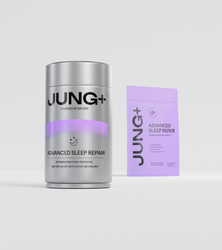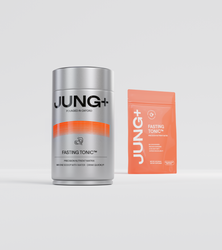As the world becomes increasingly focused on strategies to promote healthy aging, dietary supplements and functional ingredients are gaining traction for their potential role in longevity. Among these, glucomannan—a water-soluble dietary fiber derived from the konjac root—has emerged as a promising player. Known for its exceptional viscosity and unique ability to support metabolic health, glucomannan offers various mechanisms that align with the foundational pillars of longevity.
In this article, we delve into the evidence surrounding glucomannan’s longevity benefits, exploring its potential to enhance healthspan, mitigate chronic conditions, and promote overall vitality.
What is Glucomannan?
Glucomannan is a polysaccharide fiber primarily composed of glucose and mannose sugars, making it highly viscous when mixed with water. Once ingested, it expands in the stomach to form a gel-like matrix, significantly slowing digestion and nutrient absorption. This mechanism underpins many of its metabolic benefits, from regulating blood sugar to improving satiety.
How Does Glucomannan Influence Longevity?
While glucomannan is not a direct "anti-aging" compound, its ability to mitigate chronic conditions and promote metabolic balance aligns with longevity science. Let’s explore these benefits in greater depth.
1. Supports Metabolic Health
Aging is closely linked to declining metabolic efficiency, often manifesting as insulin resistance, type 2 diabetes, and obesity. Glucomannan’s role in improving metabolic health is supported by robust evidence:
- Improved Glycemic Control: By delaying glucose absorption, glucomannan reduces postprandial blood sugar spikes. A randomized controlled trial found that glucomannan supplementation significantly improved fasting blood glucose levels in individuals with type 2 diabetes (Chen et al., 2003). Stable blood sugar is a key determinant of reduced oxidative stress and systemic inflammation—factors that drive biological aging.
- Weight Management: Obesity accelerates aging by increasing inflammation and disrupting metabolic processes. Studies suggest that glucomannan promotes weight loss through enhanced satiety and reduced caloric intake. A meta-analysis by Onakpoya et al. (2014) concluded that glucomannan supplementation led to significant weight reductions in overweight individuals compared to placebo.
2. Enhances Cardiovascular Health
Cardiovascular disease remains one of the leading causes of mortality worldwide. Aging contributes to a decline in arterial flexibility, increased cholesterol levels, and heightened oxidative stress. Glucomannan addresses these challenges in several ways:
- Cholesterol Reduction: Glucomannan binds bile acids in the gut, promoting their excretion and forcing the liver to use circulating cholesterol to produce new bile acids. This process lowers LDL cholesterol levels. Research published in The American Journal of Clinical Nutrition (Anderson et al., 2004) found that glucomannan reduced LDL cholesterol by up to 16% after just four weeks of supplementation.
- Blood Pressure Regulation: By improving endothelial function and reducing arterial stiffness, glucomannan may indirectly support healthy blood pressure levels.
3. Promotes Gut Microbiome Diversity
The gut microbiome plays a central role in longevity, influencing everything from immune function to inflammation and metabolic health. Glucomannan acts as a prebiotic, feeding beneficial bacteria such as Bifidobacterium and Lactobacillus.
- Short-Chain Fatty Acid Production: The fermentation of glucomannan in the colon produces short-chain fatty acids (SCFAs) like butyrate, which have anti-inflammatory properties and support gut barrier integrity (Wang & Gibson, 1993).
- Reduced Systemic Inflammation: Chronic inflammation, often referred to as “inflammaging,” is a key driver of biological aging. By promoting gut microbiota balance, glucomannan may reduce systemic inflammation and support overall health.
4. Reduces Systemic Inflammation
Systemic inflammation accelerates aging by damaging cells, tissues, and organs over time. Glucomannan’s dual role in gut health and metabolic balance helps mitigate inflammation:
- Lowered Oxidative Stress: Improved glucose control and reduced LDL cholesterol levels are associated with decreased oxidative stress, a hallmark of aging.
- Gut-Immune Axis Modulation: A healthy microbiome leads to reduced production of pro-inflammatory cytokines like IL-6 and TNF-alpha.
5. Mimics Benefits of Caloric Restriction
Caloric restriction (CR) is one of the most well-documented interventions for lifespan extension. While glucomannan is not a direct substitute for CR, its appetite-suppressing properties may help mimic some of the metabolic benefits associated with reduced caloric intake:
- AMPK Activation: Stabilized blood sugar and improved lipid profiles are associated with enhanced activation of AMPK, a cellular energy sensor linked to longevity.
- Weight Loss Synergies: By promoting healthy weight management, glucomannan reduces adipose tissue inflammation—a key benefit of caloric restriction.
6. Improves Biomarkers of Aging
Glucomannan may positively influence several biomarkers commonly associated with aging and chronic diseases:
- Fasting Insulin Levels: Improved glycemic control translates to lower fasting insulin levels, reducing risks of insulin resistance and metabolic syndromes.
- Lipid Profile: Enhanced cholesterol ratios (higher HDL to LDL) and reduced triglycerides support cardiovascular health.
- C-Reactive Protein (CRP): Studies suggest that glucomannan supplementation can lower CRP levels, indicating reduced systemic inflammation.
Key Studies Supporting Glucomannan’s Longevity Benefits
- Chen et al. (2003): A randomized controlled trial demonstrated improved glycemic control and reduced LDL cholesterol in type 2 diabetes patients after glucomannan supplementation.
- Anderson et al. (2004): Highlighted glucomannan’s impact on lowering cholesterol and promoting cardiovascular health in clinical settings.
- Onakpoya et al. (2014): Meta-analysis of glucomannan's efficacy in weight loss, showing statistically significant results compared to placebo.
Cautionary Notes
While glucomannan offers significant benefits, excessive supplementation can lead to gastrointestinal discomfort, such as bloating or constipation. Additionally, its water-absorbing properties require adequate hydration to avoid esophageal blockages.
Conclusion
Glucomannan is a versatile and evidence-backed ingredient with profound implications for healthy aging. By targeting metabolic health, gut microbiota, and inflammation, glucomannan aligns with several key mechanisms of longevity. While more research is needed to solidify its direct role in lifespan extension, its broad-spectrum benefits make it a compelling addition to any health and longevity regimen. For those seeking a scientifically grounded approach to aging, glucomannan offers a natural, multi-faceted solution that supports healthspan and vitality well into later years.


















